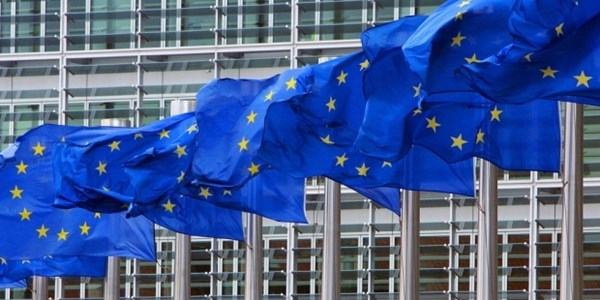EU expands sanctions against Belarus
EU countries have decided to expand economic sanctions against Belarus, German Chancellor Angela Merkel said after a two-day summit in Brussels.
The forced landing of a Ryanair flight to detain the founder and former chief executive of the opposition Telegram channel Nexta, Roman Protasevich, which the official Minsk initially attributed to Alexander Lukashenko's personal order and then tried to blame the alleged bomb threat from the Palestinian Hamas movement, is an "unacceptable violation of international agreements" that should be investigated by the International Civil Aviation Organization.
The EU demands the "immediate release of both detainees," Merkel said, referring to Protasevich and Sofia Sapega, a Russian citizen who was in Belarus during mass protests in August-September.
Merkel reminded that Belarusian officials and Lukashenko personally are already on the "black list" of the European Union. This list will be expanded and will include new individuals and companies.
These are "new targeted economic sanctions," Merkel said.
The discussions on the situation in Belarus and relations with Russia were held in the strictest secrecy. Their participants were forbidden to take any electronic devices with them, Bloomberg writes. As for Russia's involvement in the Ryanair incident, Merkel said Brussels had no "solid data" on the issue.
British Foreign Minister Dominic Raab said that it is "very difficult" to believe that there is no Russian trace in Lukashenko's special operation.
The Belarusian opposition calls on the EU to impose tough sanctions against key Belarusian exporters, including Belneftekhim and Belaruskali.
By banning European legal entities from buying products of Belarusian state-owned companies, the EU will cut off Lukashenko's regime from foreign currency sources, argue the authors of the plan, which is cited by the Financial Times.
Belneftekhim brought $4.2 billion in export revenues to the Belarusian economy last year, while Belaruskali generated $2.4 billion.
The largest Belarusian refinery Naftan has been under U.S. sanctions since April and has been cut off from supplies of raw materials from Russia. Key suppliers from Russian oil companies refused to sell oil to the company for fear of being subjected to secondary sanctions.
The day before, EU leaders recommended European airlines to avoid flights over Belarus, and also banned flights of Belarus’ national carrier BelAvia to enter the airspace of the European Union.
The airline was forced to cancel flights to Lithuania, France and the UK, and also decided to lay off 50% of its employees.
British Airways, AirFrance, Ukraine International Airlines, Lithuanian KlasJet, Swedish SAS, Dutch KLM, Polish LOT, Austrian Airlines, Finnair, Singapore Airlines, German Lufthansa, Latvian AirBaltic, Cyprus AviaSolutions, Japan's All Nippon Airways, Spain's Iberia and even Kazakhstan's national carrier AirAstana have announced the cancellation of flights over Belarus.
